CMN 230
Trans Studies and Communication

1. Course Description
This course introduces students to trans issues through an intersectional approach to media analysis and gender studies. Intersectionality provides a theoretical framework to investigate the overlapping experiences of multiple forms of oppression, as well as ongoing resistance to state violence through decolonization and anti-racist activism. Students uncover how trans media production influences health communication and medical access narratives. Students will analyze trans communication in the workplace, in visual culture, and in emerging media creation.
Last Revised
Delivery
Lecture: 2 hours, Lab: 1 hour
2. Course Objectives & Learning Outcomes
- To understand the connections between trans identities and health communication, as well as histories of medicalization and contemporary issues of healthcare access
- To acquire a working knowledge of narrative, linguistic, and rhetorical strategies in relation to trans studies
- To conduct a critical, intersectional analysis of the discursive construction of gender as it intersects with sexuality, disability, class, colonization, and race
- To analyze, create, and research emerging media responses to gender-based activism and resilience
3. Topics Covered
- Introduction to Trans Studies and Communication
- Trans 101: Defining Terms, Intersectionality, Media Analysis
- Decolonizing Trans Studies
- Trans Histories and Media
- Trans Histories and Archives
- Trans Fiction
- Black Trans Feminisms and Popular Culture
- Trans Justice
- Disability, Photography, Chosen Family
4. Teaching Method
Lectures and Workshops
This course uses a combination of lectures and workshops. Students are responsible for reading the assigned materials before each class.
Graded Assignments and Exam
Evaluation will be based on three assignments and a group chat “media pod” assignment.
5. Course Materials
All required course materials will be available on D2L.
Readings can be accessed on D2L under the “Resources/Library E-Reserves” dropdown menu.
6. Policy
6.1 University Policies
Students are required to adhere to all applicable university policies found in their Online course shell in D2L and the Course Outline Policies.
6.2 Print and Digital Copying Guidelines:
Toronto Metropolitan University complies with Canada’s Copyright Act which protects both creators/owners and users of copyrighted materials. Students should familiarize themselves with TMU Copyright policies and procedures, and contact the Copyright and Scholarly Engagement Librarian at copyrt@torontomu.ca for questions, concerns and clarification of the copyright rules.
6.3 Turnitin.com
Turnitin.com is a plagiarism prevention and detection service to which Toronto Metropolitan University subscribes. It is a tool that helps instructors determine the similarity between student work and the work of other students who have submitted papers to the site (at any university), Internet sources, and a wide range of books, journals, and other publications. While it does not contain all possible sources, it gives instructors some assurance that students’ work is their own. No decisions are made by the service; it generates an “originality report,” which instructors must evaluate to judge whether something is plagiarized.
Students agree by taking this course that their written work will be subject to submission for textual similarity review to Turnitin.com. All submitted papers will be included as source documents in the Turnitin.com reference database solely for the purpose of comparing the similarity of such papers. Use of the Turnitin.com service is subject to the terms-of-use agreement posted on the Turnitin.com website. Students who do not want their work submitted to this plagiarism detection service must, by the end of the second week of class, consult with their instructor to make alternative arrangements. Even when an instructor has not indicated that a plagiarism detection service will be used, or when a student has opted out of the plagiarism detection service, if the instructor has reason to suspect that an individual piece of work has been plagiarized, the instructor is permitted to submit that work in a non-identifying way to any plagiarism detection service.
6.4 Email Communication
Toronto Metropolitan University requires that any official or formal email communication from students be sent from their official Toronto Metropolitan University electronic accounts.
6.5 Video and Audio Recording
No video or audio recording is permitted in class without the express permission of the instructor.
7. Learning Management System
Toronto Metropolitan University supports Brightspace by D2L as its official Learning Management System. University Policies governing Brightspace have been documented at the Courses @ Toronto Metropolitan University Privacy and Security website.

